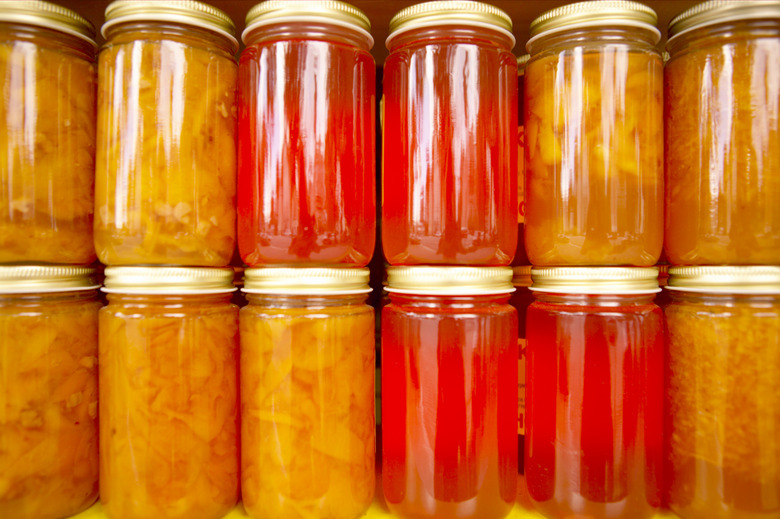Earth Friendly Food Storage Containers
If the Victorians could have picnics without plastic zipper food bags and medieval hunting conventions could host outdoor feasts without aluminum foil, there must be a way for people today to store and carry food without using environmentally-irresponsible products. Earth-friendly food storage options exist. All it takes is a little thought and a willingness to avoid the convenience of disposable containers,
Glass
Glass
Reusable, recyclable and made from natural raw materials, glass is one of the most earth-friendly food storage containers available. Glass canning jars are reasonably priced and available at grocery, department and hardware stores. Unlike plastic containers, which scratch, absorb odors and discolor, there is no need to replace glass unless it breaks. Its longevity and ease of reuse make it exceptionally earth-friendly.
Compostable/Biodegradable
Compostable/Biodegradable
Often, food containers labeled biodegradable can mislead consumers; they are not necessarily earth-friendly. Biodegradable products break down, but some might take many years to decompose, and others might release toxins into the environment as the containers decay. Biodegradable food containers designed for short-term storage are made from a variety of bio-based materials including sugar cane, bamboo and other fibers. These products break down quickly in compost facilities with no toxic byproducts.
To ensure your food containers are earth-friendly, check for certification by ASTM International (a materials standards organization), the Biodegradable Products Institute (BPI) or the U.S. Composting Council.
Metal
Metal
Although stainless steel food containers are washable, reusable and long-lasting, they are more expensive than other storage options. Besides being earth-friendly, metal food containers are also travel-friendly. They can be easily packed for at-school or at-work lunches, avoiding the waste created by take-out or convenience food packaging. Recycle coffee cans for storing dry foods such as beans, rice or sugar. Aluminum food storage containers are reusable and recyclable, but the extraction of aluminum is not earth-friendly. So, limit the use of containers made of aluminum.
Plastic
Plastic
Although it does not have an earth-friendly reputation, some plastic is recyclable and safe for repeated use. Check the bottom of the container for plastics labeled 1PET, 2HDPE, 4LDPE and 5PP. Most of these plastics are accepted in municipal recycling programs and break down without toxic leaching. Avoid plastics with PVC and BPA because these compounds are toxic chemicals that can leach into food, especially when the container is heated.
Cite This Article
MLA
Godawa, Jean. "Earth Friendly Food Storage Containers" sciencing.com, https://www.sciencing.com/earth-friendly-food-storage-containers-2018/. 24 April 2017.
APA
Godawa, Jean. (2017, April 24). Earth Friendly Food Storage Containers. sciencing.com. Retrieved from https://www.sciencing.com/earth-friendly-food-storage-containers-2018/
Chicago
Godawa, Jean. Earth Friendly Food Storage Containers last modified March 24, 2022. https://www.sciencing.com/earth-friendly-food-storage-containers-2018/
